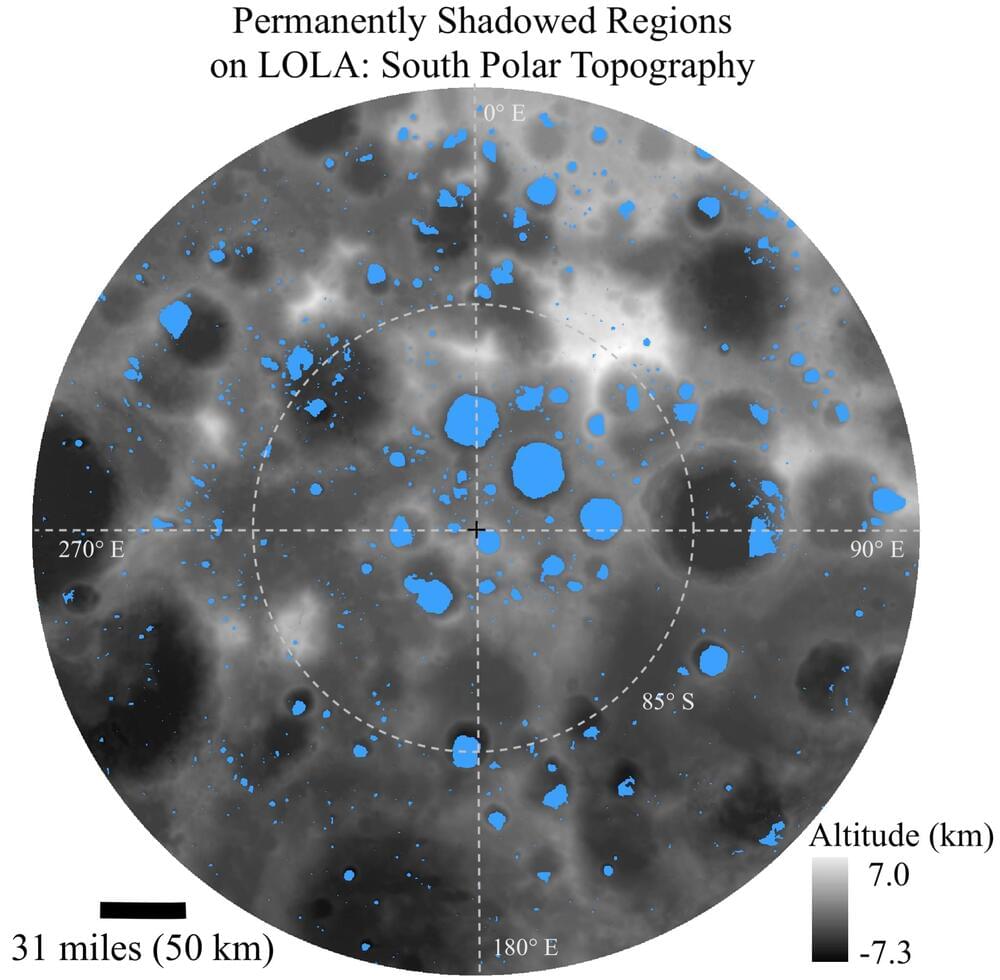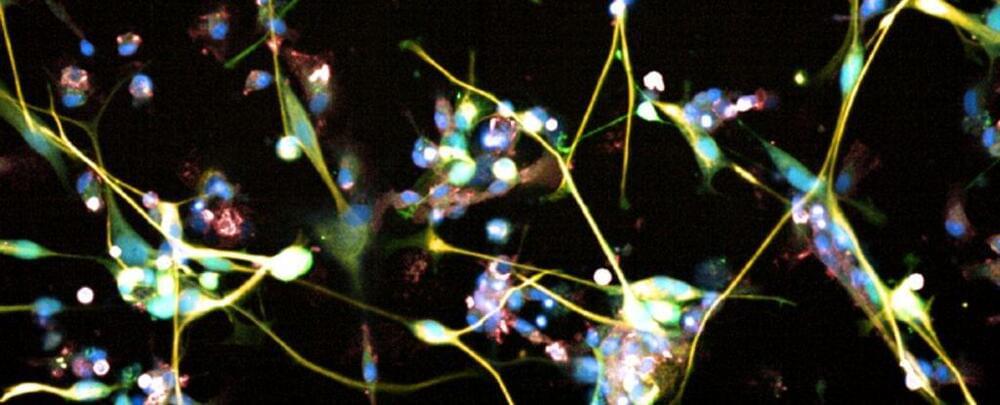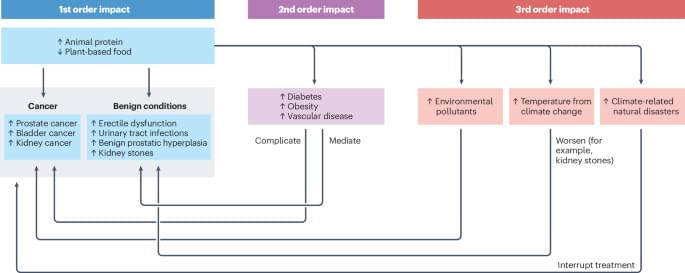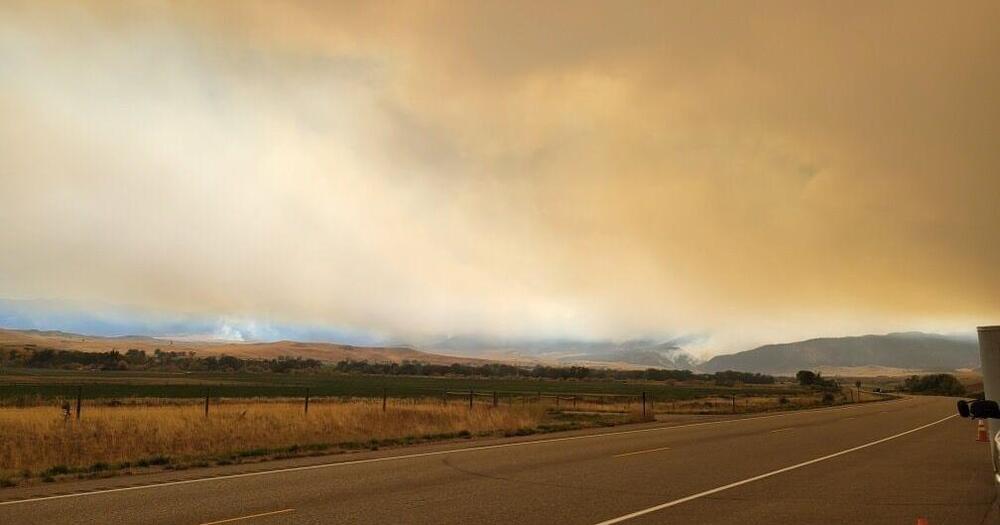
Scientists have discovered far more water ice deposits near the Moon’s south pole than previously hypothesized, which could help astronauts on future crewed missions to the lunar surface.
How much water ice could be present within the permanently shadowed regions (PSRs) near the Moon’s south pole? This is what a recent study published in The Planetary Science Journal hopes to address as a team of researchers investigated how water ice deposits could exist hundreds of miles beyond the PSRs located near the south pole, as opposed to close proximity to the south pole as previous studies have hypothesized. This study holds the potential to enable future crewed missions to locate water ice deposits, which could assist in water usage, oxygen generation from electrolysis, fuel, and energy.
For the study, the researchers used NASA’s Lunar Reconnaissance Orbiter (LRO) to obtain data on hydrogen concentration within several PSR craters near the lunar south pole, along with potential sources of the hydrogen concentrations. The reason PSRs are targets for water ice is due to their extreme depths where sunlight doesn’t reach, resulting in temperatures well below-freezing and the accumulation of water ice over millions, if not billions, of years. The team found that hydrogen concentrations existed in craters several hundred miles from the direct south pole and with temperatures below 75 Kelvin (−198.15 degrees Celsius/-324.67 degrees Fahrenheit). Additionally, the team also concluded that the likely sources of the hydrogen concentrations were from a variety of sources, including solar radiation, comets, and meteorites.
Continue reading “Widespread Water Ice Deposits Discovered on the Moon” »


















